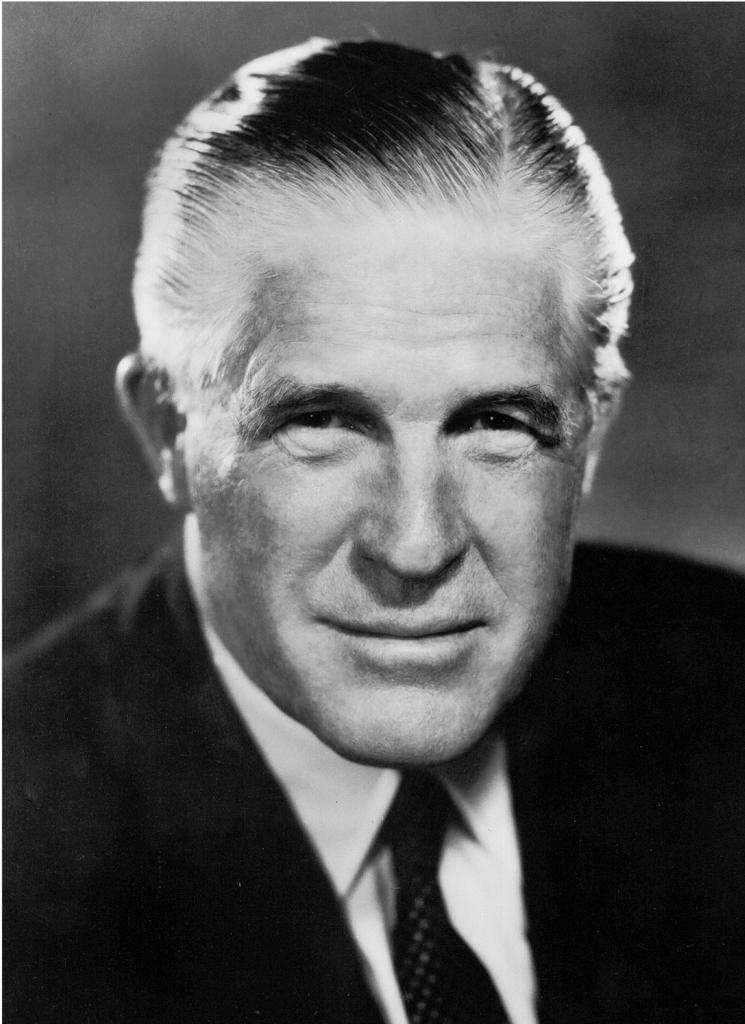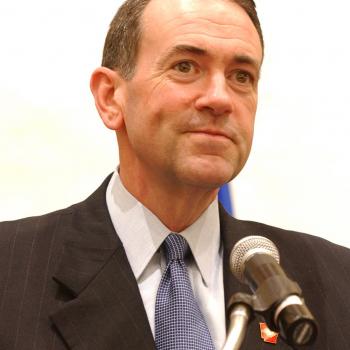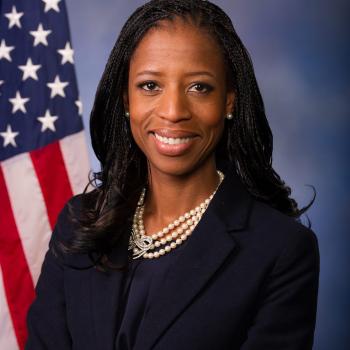
RNC Chairwoman Ronna Romney McDaniel has forsaken the pro-civil rights legacy of her grandfather George Romney.
The Church of Jesus Christ of Latter-Day Saints (Mormon Church) has a fraught history with race. Up until 1978, persons of African ancestry could not hold the faith’s priesthood or participate in ceremonies in its temples. Further, some prominent Mormons were bitter opponents of the civil rights movement. For example, Ezra Taft Benson, the 13th President of the Church, gave strident talks condemning the civil rights movement prior to his elevation to the presidency and even allowed his remarks to preface a racist screed titled The Black Hammer: A Study of Black Power, Red Influence, and White Alternatives.
But in the midst of such racial prejudice, one prominent Mormon stood out for embracing the civil rights movement: George W. Romney. Romney, the 43rd governor of Michigan and former CEO of American Motors Corporation, was an unflinching champion of equality in a time when it was easier for a Republican, and especially a Mormon Republican, to stay on the sidelines. In 1963, his first year as Michigan governor, he boldly participated in an anti-segregation rally with black community leaders in the suburb of Grosse Pointe. The next year, as Barry Goldwater clinched the Republican nomination for president, Romney refused to back his party’s candidate, citing Goldwater strategists’ plans to exploit the Southern backlash to the civil rights movement. Later, when he served as Secretary of Housing and Urban Development under Nixon, he strove to integrate communities that had previously been closed to African Americans.
Now jump forward a few decades. The year is 2017, and George Romney’s granddaughter, Ronna Romney McDaniel, is the chairperson of the Republican National Committee (RNC). In that capacity, she has played the role of apologist for the Trump Administration, often going to bat to excuse the inexcusable. She praised Trump’s discriminatory Muslim Ban, lauding it as “exactly the kind of action a protective President takes.” Later, when Trump slandered former FBI Director James Comey, McDaniel didn’t hesitate to pile on, essentially buying in to Trump’s narrative that the longtime public servant is a “grandstander.” McDaniel has even embraced Trump’s authoritarian war on the media, parroting his rhetoric about “fake news.”
Perhaps the worst example of McDaniel playing Donald’s hype-woman could be seen yesterday, during the RNC’s summer meeting. During that event, the committee voted on a resolution condemning neo-Nazis, the KKK, and other white supremacists and declared that the beliefs of such groups are “inconsistent with the Republican Party’s platform.” But noticeably absent from the resolution was any word of censure for a person who has given such hateful groups succor: President Trump. Despite Trump’s equivocation about the violence in Charlottesville, in which a radical white terrorist killed a woman protesting for equality, the RNC cowardly avoided any condemnation of Trump in its resolution, instead choosing to paper over the President’s wink-and-nod to white supremacists.
One can argue that McDaniel shouldn’t be to blame for the RNC’s tepid resolution – after all, she’s only one person on the committee. However, McDaniel, as chairwoman, exercises an extraordinary amount of influence over the RNC’s agenda and actions – if she had truly wanted to, she could have forced a vote on a resolution explicitly condemning Trump’s boost to radical whites. The fact that she didn’t do so reveals that McDaniel is willing to look the other way as white nationalists receive the tacit approval of the White House.
George Romney was a fervent champion of civil rights, defying the views of many in his party and the LDS Church to push for equality for all. His granddaughter Ronna Romney McDaniel, on the other hand, has forsaken her grandfather’s legacy, choosing to ignore the festering sore of white supremacism that is metastasizing in the Trump Administration. The apple has fallen very far from the tree.












